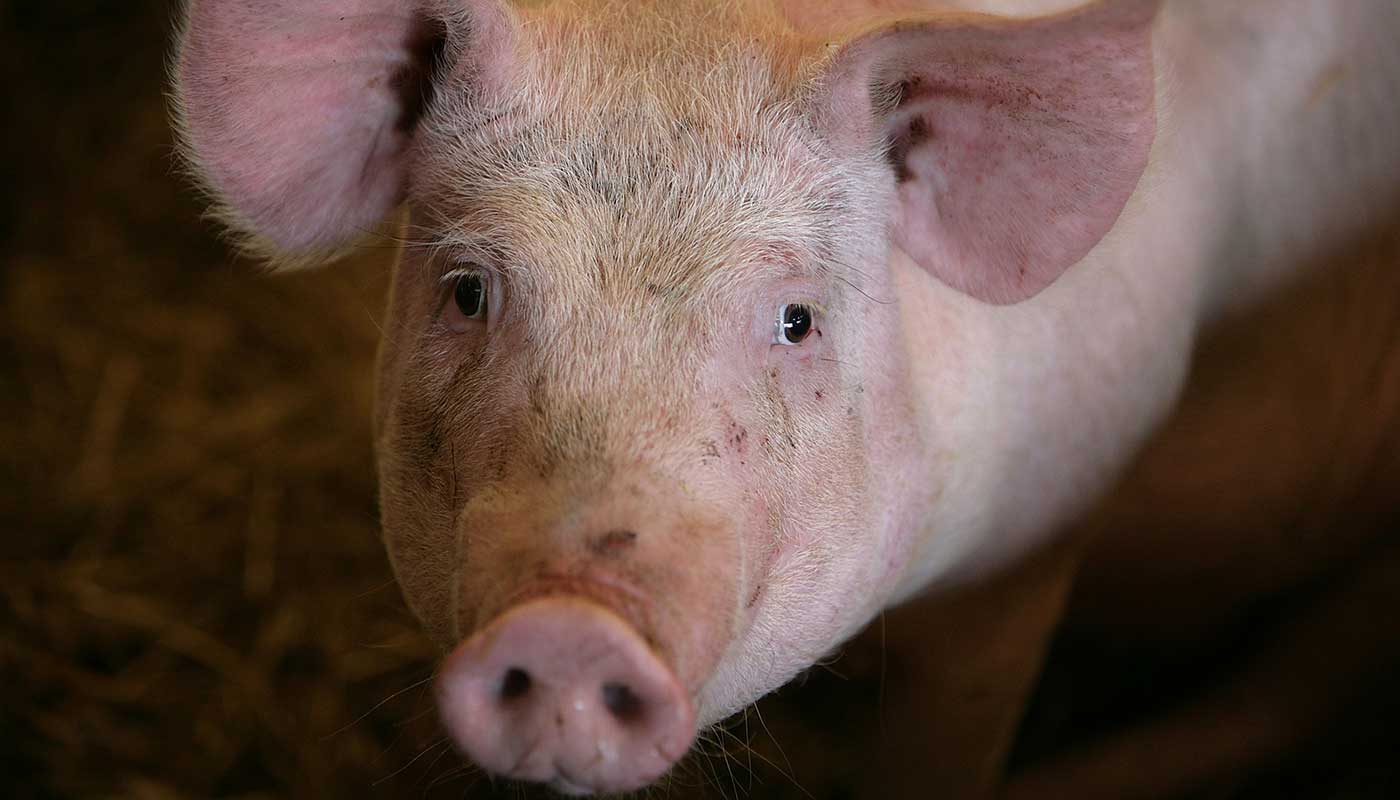Could swine fever epidemic see pork taken off the menu?
Slovakia becomes latest country to report outbreak amid rising fears about inadequate containment efforts

A free daily email with the biggest news stories of the day – and the best features from TheWeek.com
You are now subscribed
Your newsletter sign-up was successful
Animal health experts worldwide are on alert as African swine fever creeps across Europe while China battles a nationwide outbreak of the disease that threatens hundreds of millions of pigs.
This week, Slovakia became the latest country to report being hit by the disease, after a farm in the east of the Central European nationwide recorded an outbreak among its livestock.
Romania reported 300 new cases in July, and Bulgaria “could lose its entire pig breeding industry and have its 600,000 pigs culled” as a result of the deadly condition, says Reuters.
The Week
Escape your echo chamber. Get the facts behind the news, plus analysis from multiple perspectives.

Sign up for The Week's Free Newsletters
From our morning news briefing to a weekly Good News Newsletter, get the best of The Week delivered directly to your inbox.
From our morning news briefing to a weekly Good News Newsletter, get the best of The Week delivered directly to your inbox.
The governments of a number of other countries - including Greece - have put measures in place to ramp up swine fever inspections at their own pig farms.
But the problems faced by European farmers pale in comparison to those in China, where the epidemic has already forced the culling of more than a million pigs - with as many as 200 million at risk.
So is global pork production under serious threat?
What is swine fever?
A free daily email with the biggest news stories of the day – and the best features from TheWeek.com
African swine fever is a virus usually transmitted to domestic pigs through contact with infected wild boars, Euronews reports.
The disease has an extremely high mortality rate in pigs, with infected animals dying within two to ten days, on average.
There is no known cure for infected pigs, and those which contract the disease must be killed and disposed of in order to halt the spread.
However, while swine fever is very bad news for pigs, it poses no threat to humans’ health.
Where are the current outbreaks?
Historically, small-scale outbreaks of swine fever have been reported in Africa, Europe, South America and the Caribbean.
But more recently - since 2007 - larger epidemics been also reported in “multiple countries across Africa, Asia and Europe, in both domestic and wild pigs”, says the World Organisation for Animal Health.
China has been hit hardest, with experts predicting that the current outbreak will see total Chinese pork production this year falling by up to a third, equivalent to 18 million tonnes. Some analysts paint an even bleaker picture, with Channel News Asia reporting that as many as half of the country’s breeding pigs could succumb to the disease or preventative culls.
Elsewhere in Asia, countries including Vietnam, Cambodia, Mongolia, North Korea and Laos have been affected, as have parts of Eastern Europe. The European Commission has classified Bulgaria, Poland and Lithuania as new high-risk areas.
And while no official outbreaks have been recorded among domesticated pigs in western Europe, the virus has been identified in wild boars in Belgium.
How great is the global risk?
The Economist presents a worrying picture of the Chinese government’s handling of the crisis, amid claims that the extent of the epidemic in the vast country may be worse than the authorities will admit.
In June, China’s Ministry of Agriculture announced that the disease had been “effectively controlled”, yet just a month later infected pigs were found in Liaoning province. Meanwhile, industry insiders and whistle-blowers say outbreaks are going unreported, “either because local authorities cannot pay farmers forced to cull their herds, or because they fear punishment from higher-ups”, says the magazine - which adds that “some farms are reported to be selling infected pigs, thereby spreading the virus”.
Lawmakers in Europe have also expressed concern over the containment efforts in Bulgaria. European Commissioner for Health and Food Safety Vytenis Andriukaitis this week announced that the country will receive €2.9m (£2.7m) in financial aid from the EU to help combat the disease.
Andriukaitis had previously stated he was “deeply disappointed” by the Bulgarian government’s attempts to tackle the outbreak.
Although the disease poses no risk to human health, analysts say the price of pork worldwide may skyrocket if containment efforts prove insufficient.
Pork prices has already increased by up to 30% in Bulgaria over the past month, while mainland China is expected to see an increase of up to 70% year-on-year in the second half of 2019.